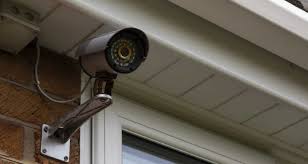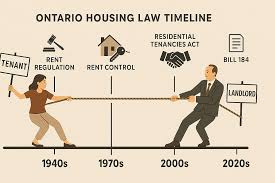Finding an apartment to rent in Canada can be stressful, especially in competitive housing markets like Toronto, Vancouver, and Montreal. Unfortunately, rental scams are becoming increasingly common, preying on people looking for a quick and affordable place to live. These scams can cost victims hundreds or even thousands of dollars. Being informed and cautious can help you avoid becoming a target. Here’s how to spot rental scams in the Canadian apartment market.
1. Too Good to Be True
If a rental listing seems too good to be true, it probably is. A beautiful apartment in a prime location for a very low price is a classic red flag. Scammers often use attractive photos and low rent to lure people in quickly. Always compare the price to similar listings in the area. If the rent is significantly lower than average, be skeptical.
2. No In-Person Viewing
A legitimate landlord or property manager will always allow you to view the apartment before signing a lease or making a deposit. If the person insists that they are “out of town” or “unavailable” and refuses to show you the unit, this is a major warning sign. Some scammers may offer a “virtual tour,” but without a chance to see the property yourself or send someone on your behalf, it’s risky.
3. Requests for Upfront Payment
Never send money via e-transfer, wire transfer, or cryptocurrency to someone you haven’t met and for a property you haven’t seen. Scammers often ask for first and last month’s rent or a deposit to “secure” the apartment, only to disappear once the money is received. Always make payments after seeing the unit and signing a valid lease.
4. Poor Communication and Unprofessional Behavior
Watch out for emails or messages that are poorly written, generic, or overly urgent. Scammers often create a false sense of urgency, saying things like “many people are interested, send a deposit now to reserve it.” A real landlord will take the time to answer your questions and won’t pressure you to act without proper documentation.
5. Suspicious Listings and Duplicate Ads
Be cautious of listings that lack detailed information, have limited photos, or show signs of being copied from other websites. You can do a reverse image search on Google to see if the same photos are being used elsewhere with different contact information. This is a common tactic in scam ads.
6. No Official Lease Agreement
Always ask for a lease agreement and review it carefully. A proper lease should include the names of both the tenant and landlord, the rental term, payment terms, and responsibilities. If someone is unwilling to provide a lease or says it’s “not necessary,” that’s a red flag.
Final Tips:
- Use reputable rental websites like Realtor.ca, Rentals.ca, or ApartmentListing.ca .
- If you’re unsure, contact the property manager directly or call the building’s management office.
- Report suspicious listings to local authorities or to the Canadian Anti-Fraud Centre.
Being vigilant and asking the right questions can save you from costly scams. When in doubt, trust your instincts and don’t rush the process.
Search
Categories
Recent posts
Tags
- a louer
- affordable apartments Toronto
- affordable housing
- affordable housing solutions Canada
- Air Filters
- air quality
- apartment
- apartment close to public transport
- apartment for rent
- apartment for rent montreal
- apartment for rent Toronto
- apartment insurance
- appartement
- appliances
- ARTICLE
- available for rent
- background check
- bacteria
- best city to live in canada
- best healthcare
- bicycle
- bicycle path
- bike lane
- bike path
- bikes
- bill 16
- burglar
- buy a house
- buying a house
- carbon monoxide detector
- cars
- centris
- city
- cleaning
- cleaning products
- cleaning wood floors
- closet
- closet space
- clothing organizer
- compact rental units
- condo
- condo association laws
- condo fees
- condo for rent
- condo insurance
- construction budget
- construction contractors
- construction cost
- credit check
- decorating room
- digital transaction
- door lock
- doors
- downtown micro apartments
- electricity
- employment verification
- energy consumption
- energy cost
- energy saving
- engineered hardwood
- fire alarm
- fire detector
- fire extinguisher
- floor
- flooring
- for rent
- For rent in Montreal
- For rent in Toronto
- For rent in Vancouver
- for sale
- furniture
- gas
- healthy candles
- healthy lifestyle
- home
- house
- house for rent
- house for sale
- house garden
- house insurance
- house locks
- house plants
- immigrant
- importance of water leak detector
- indoor plants
- insurance
- intergenerational home
- intergenerational living
- interior designer
- investment
- landlord
- lease
- lease responsibility
- long term care facility
- low crime
- mattress
- micro-apartments Vancouver
- micro-units Toronto
- mls
- move to canada
- moving company
- Moving to canada
- moving truck
- multigenerational home
- multiplex
- nano-suites
- nano-suites Toronto
- new apartment
- new color
- oil
- old age home
- online house purchase
- Ontario
- paint colors
- passive income
- pet friendly apartment
- pet friendly plants
- planning for vacation
- plants
- porcelain tile
- property
- questions for apartment rental
- real estate
- real estate agent
- real estate broker
- real estate online
- real estate transaction
- realtor
- renal history
- rent
- rent an apartment
- rent control
- rent obligations
- rental
- rental board
- rental scam
- renting
- residential income
- residential lease
- residential rental
- revenue property
- safe area
- safe candle in apartment
- safe candle in house
- safe candles
- safety
- scam
- security
- sell a house
- seniors residence
- small apartments Vancouver
- smoke detector
- social media and real estate
- soy candle
- soy candles made with essential oils
- storage space
- student apartment
- student housing
- tenant
- tiny rentals Canada
- traffic
- trending color
- trending paint
- university student rental
- ventilation
- vinyl floor
- water alarm
- water damage
- water leak detector
- window frame
- window manufacturer
- windows
- wood floors



